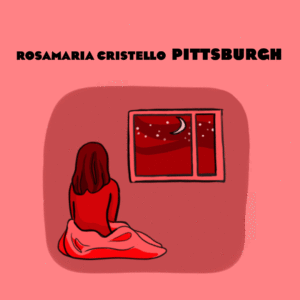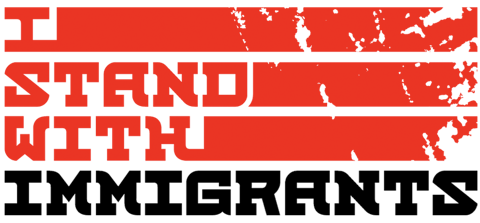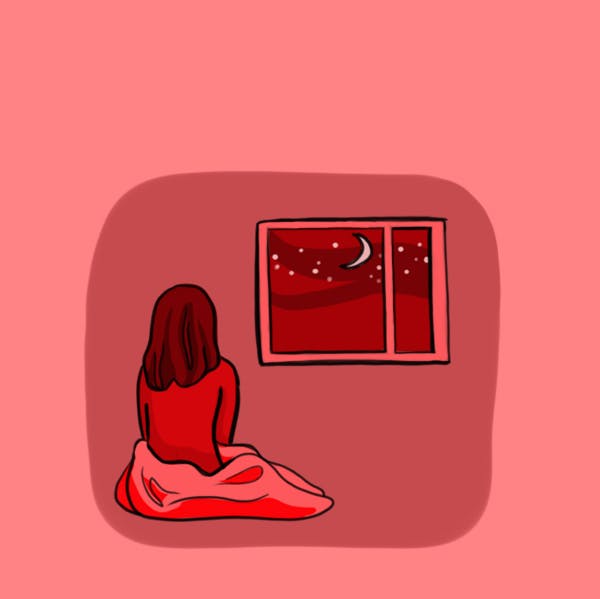Rosamaria Cristello
Home is sacred. You build a life with family, wrought with memories and connection. Too often, immigrants leave home in search of a new one and can never return back to the place where family and friends are.
Rosamaria del Carmen Cristello was uprooted from her childhood home in Guatemala, separated from her family, and forced to raise herself alongside her sister. It is why she has dedicated herself to a life of helping others, both at home and abroad. As executive director of Pittsburgh Latino Community Center, she has focused the center’s efforts on Supporting Our Youth Pittsburgh, providing after-school programs for elementary and middle school children. They also provide wraparound support for Latino families in emergency crises, and the community has started conducting wellness checks on each other, forming bonds and creating trust. While the community is Rosamaria’s favorite part about Guatemala, she has found her own family here in the U.S. as well. “It took a village to really get me to where I’m at.”
 Rosamaria describes her childhood from birth to eight years old as “perfect.” “When I got to fifth grade, after that? It was not perfect. It just got dark.” While her father’s employer sponsored his documented status in the United States, the rest of the family was without legal status. Due to their lawyers’ disinformation, they believed they could make a trip to Guatemala and return to the U.S. What they all thought would be a quick visit turned into a two-year stay in Guatemala. The family suddenly had to abandon their house in America, their friends, the only home Rosamaria knew.
Rosamaria describes her childhood from birth to eight years old as “perfect.” “When I got to fifth grade, after that? It was not perfect. It just got dark.” While her father’s employer sponsored his documented status in the United States, the rest of the family was without legal status. Due to their lawyers’ disinformation, they believed they could make a trip to Guatemala and return to the U.S. What they all thought would be a quick visit turned into a two-year stay in Guatemala. The family suddenly had to abandon their house in America, their friends, the only home Rosamaria knew.
This new home in Guatemala had chickens she’d feed and lemon trees she’d climb; long conversations with her tia, teaching her how to cook. She smelled incense and rose petal carpets on the streets as Easter slowed down the country and stores closed to acknowledge the solemn celebration of Semana Santa, or Holy Week, full of religious rituals and procession. Colors were everywhere with the loudest one being the purple robes worn by a sea of men. And even with these comforts and celebrations, she suffered without her father. She looks up at the moon talking to her dad, wistful of her old life, “Come get us, please. I want to be with you. I want to be with my friends. I want to be with my dad, begging him.”
Her father crossed to Guatemala and back three times in those two years to try to bring them back to the U.S. The strain of the travel and the strife of the separation was affecting her parents’ marriage. Though his efforts eventually paid off and they were able to return back home, the family was changed and broken. “Now I know, that was so much pressure to put on my dad and he did everything he could to come get us. He did. At the end of the day, he did. He won’t tell us how he did it to have the family together again.”
When Rosamaria was 14, her mother, Imelda, was faced with a terrible dilemma as her own father grew increasingly ill. She decided to travel to Guatemala, where Imelda sat by her father’s side, torn, scared, and hurting, for three months until he passed. The journey back to the States began again, this time the effects were lifelong. While attempting to cross the border, Imelda was held hostage in Texas in conditions so terrible that upon her reunion with Rosamaria, Imelda was unrecognizable, as she’d lost half of her weight. Rosamaria felt anger at first, not understanding the sacrifice it took to be reunited. She penned in a personal story in a local Pittsburgh paper of her initial anger of not understanding her mother’s sacrifice, of the pain it caused their family. “She ran through mud and barbed wire. She escaped kidnappings. She survived. My mother is a fighter, she is a warrior. And yet, my mother was never the same.” Until she was a mother herself did she not understand the true sacrifice it took. “Wouldn’t you risk it all to be with your family? Wouldn’t you sacrifice yourself to get your family away from a life of gangs and violence? Wouldn’t you decide to live in a country that doesn’t accept you just so your child could get a good education and a chance at a better life?”
During her mother’s absence and after her parents’ divorce, Rosamaria began living with friends. Her friend Jennifer’s family, who were also Guatemalan, took her in as their own. Jennifer’s dad placed the same expectations of education and studying on Rosamaria as he did his own daughter. Rosamaria soared to AP classes and college. “I wanted to make him proud.” Jennifer’s family helped pay Rosamaria’s college fees, while her other friend Gabriel and his mom bought her a computer before going to college. In college, she majored in geology. The department was more like a family than anything, helping her study and celebrating when she finally became a United States citizen in April 2011. This is the village she speaks of, the support she’s been given, and laying the foundation for the life she lives now.
Her village of support expanded as did her life in service when she spent her school breaks on missionary trips to Mexico with Team Effort; no expense trip in exchange for being the interpreter. She soon after suggested beginning a program in her motherland. “Our first year we built cement steps for a little village that just had their main road as dirt and we hired local people there to help as well,” unifying communities worldwide. These experiences led her to apply to World Race after college, a program that would allow her to travel to a new country every month, completing her dream of traveling that she’s had since she was a child. Then she went to the doctor. A precancerous condition halted her from being able to go. Frustrated and recovering, Rosamaria found AmeriCorps in Pittsburgh, “When I came to Pittsburgh I realized, wow, there’s just so much need here within the Latino community. But they’re not quick solutions […] I realized I didn’t have to go overseas to help.”
The work that Rosamaria and her organization have done has been both healing and necessary for the community, as the phone is constantly ringing and the need to pick up is always there, “Seeking help is no easy thing to do. And so if our phone is ringing, there’s already been a battle that they have won on the other side of the phone. We need to be there to pick it up and help.” Dedicated to her work, she rarely thinks of the future as her future is now. It’s living in Pittsburgh and raising her family and doing the most she can for her fellow Latinos.
“The beauty of America was that we accepted anyone and anyone could come here. That’s like the world is coming to us. That is a beautiful thing, learning from other cultures, learning how you were raised or how your parents were raised. I think in order to keep our minds open and embrace the beauty of being different and learning how other people do the same thing that you’re doing, but in a different way — that’s creativity. And that’s goals.” Given the treacherous actions of the current administration implementing a “zero-tolerance policy” and separating families to different detention centers and foster cares, losing 3,000 children in the process, she adds that we’re shutting ourselves out from what and who this nation was intended for. So she thinks back on her Guatemalan community and the late-night walks to get horchatas and tostadas; focusing on unity and focusing on family. Rosamaria’s family was by blood and by choice and she hopes to affect others’ families with her work. She and so many immigrants around the country, whether in a job of public service or fixing things, all have a commonality that Rosamaria simply describes as, “I’ve always just wanted to help.”
To Rosamaria and the entire migrant community, thank you for continuing to help.
#CELEBRATE IMMIGRANTS
We all know someone with an immigration experience or have an immigrant heritage story of our own. Join us to stay updated as we #CelebrateImmigrants across the country!


